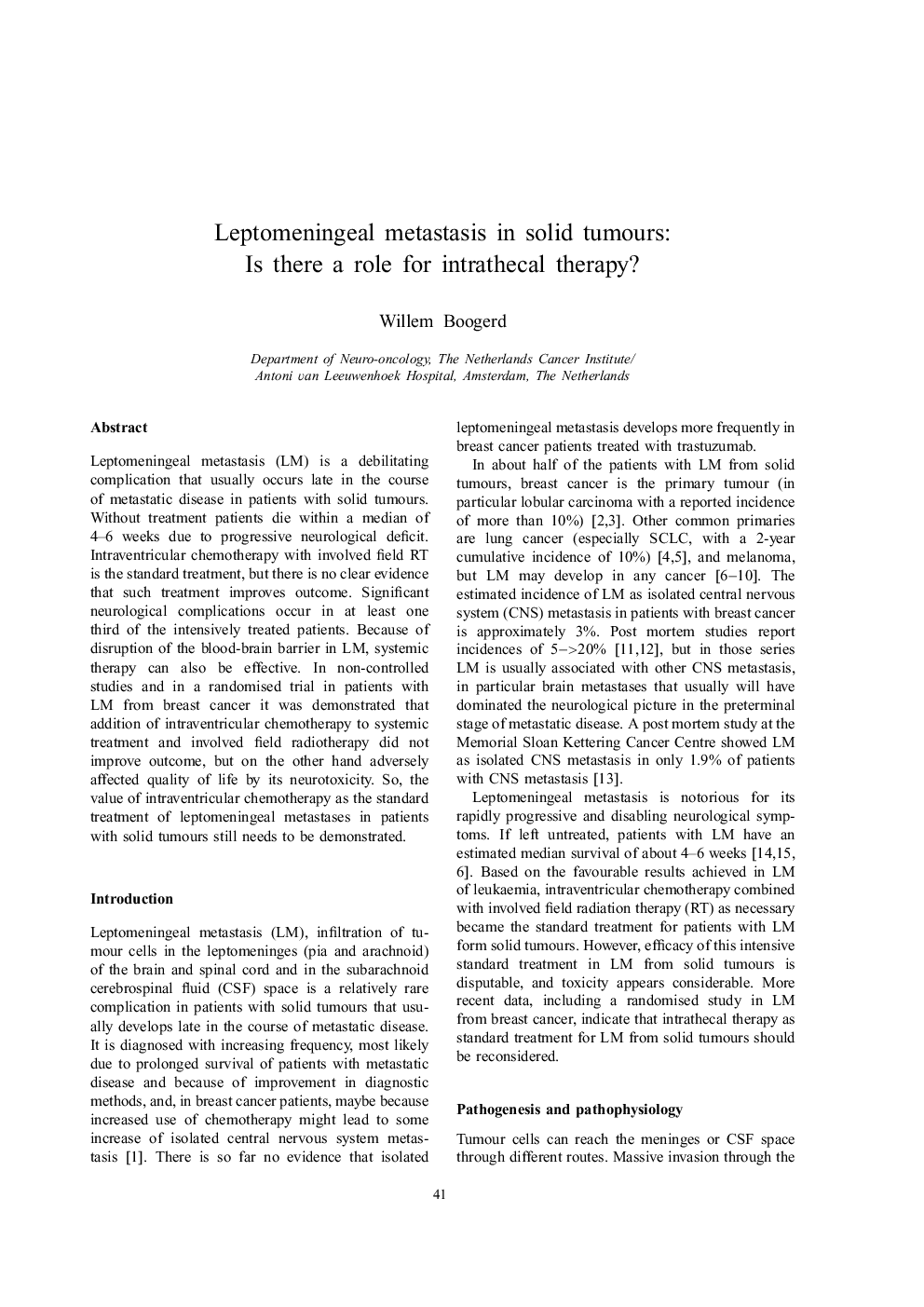| Article ID | Journal | Published Year | Pages | File Type |
|---|---|---|---|---|
| 2129597 | European Journal of Cancer Supplements | 2007 | 11 Pages |
Leptomeningeal metastasis (LM) is a debilitating complication that usually occurs late in the course of metastatic disease in patients with solid tumours. Without treatment patients die within a median of 4–6 weeks due to progressive neurological deficit. Intraventricular chemotherapy with involved field RT is the standard treatment, but there is no clear evidence that such treatment improves outcome. Significant neurological complications occur in at least one third of the intensively treated patients. Because of disruption of the blood-brain barrier in LM, systemic therapy can also be effective. In non-controlled studies and in a randomised trial in patients with LM from breast cancer it was demonstrated that addition of intraventricular chemotherapy to systemic treatment and involved field radiotherapy did not improve outcome, but on the other hand adversely affected quality of life by its neurotoxicity. So, the value of intraventricular chemotherapy as the standard treatment of leptomeningeal metastases in patients with solid tumours still needs to be demonstrated.
